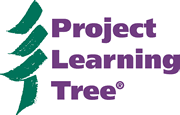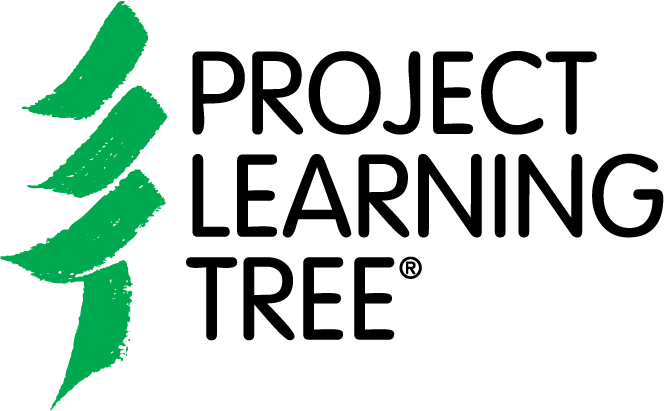
With just 380 students in grades Pre-K through 4, Lipscomb Academy Elementary School (LAES) in Nashville is small. But when it comes to being green, this PLT GreenSchool and award-winning Department of Education Green Ribbon School (2013) is mighty.
Together, LAES teachers and students are doing more things to green their school and their community than many other, much larger schools. In the process, this private school has become a “green beacon” in the community, using PLT activities to become a leader in energy conservation, recycling, and hands-on outdoor learning. PLT is a key component of the school’s green curriculum, thanks to four PLT-certified teachers and a program coordinator trained as a PLT workshop facilitator.
“We use a whole lot of different PLT activities both in our Green Team meetings and in our regular science labs,” says Ginger Reasonover, the school’s science coordinator, who is charged with teaching ‘hands-on’ science to all LAES students. “All the students in the school benefit from PLT-trained teachers like me, because we use those activities all across our program,” she notes.
“Our school has been recognized at the state and national level for our environmental efforts, presented at several state environmental conferences, and has built such a reputation that we often host other schools who are trying to build a green school program,” Reasonover says.
 Recycling Champs
Recycling Champs
Among LAES’ most notable accomplishments is a school- and community-wide recycling program that has kept an eye-popping volume of trash out of Tennessee’s landfills. These very young kids are recycling champs! In 2014, they collected and recycled more than 44,000 plastic bottles and aluminum cans, 32,500 milk cartons, 7,250 juice pouches, thousands of plastic bags, and several tons of paper and cardboard that would otherwise have ended up in a landfill.
In addition, Lipscomb Academy students host an annual collection of household hazardous waste in conjunction with America Recycles Day. In 2014, this event yielded more than 700 fluorescent lights and bulbs, 12,500 batteries, 45,000 pounds of e-waste, 200 cell phones, and 250 ink cartridges. Working with the Nashville Metropolitan Police Department, the students also collected more than 144 pounds of prescription medication by encouraging the public to bring unwanted and unused pills to the event for safe disposal. “When you think about the weight of an individual pill, that’s a whole lot of prescription medication that didn’t end up in our drinking water supply,” Reasonover says.
A Stewardship Ethic
Reasonover shares responsibility for the school’s 18-member Green Team with kindergarten teacher Becky Collins, also a PLT-trained teacher. “Both Becky and I have a desire to help our students develop as good stewards of the Earth, with an appreciation of the outdoors and an understanding that as people we are totally connected to nature, which is a source of our energy and our life,” she explains. “We want them to understand that every decision they make has an impact, positive or negative, on the environment.”
 Nothing is a better symbol of this interconnectedness than monarch butterflies, which spend time in Tennessee before wintering in high-altitude forests of Mexico. “We’ve developed a school butterfly garden of host plants and nectar plants, planted milkweed—the food plant monarch caterpillars depend on for survival, and shared milkweed seeds with other community members,” says kindergarten teacher and Green Team liaison Becky Collins. “We rear as many caterpillars as we can every year and tag the butterflies that emerge using tags provided by Monarch Watch.”
Nothing is a better symbol of this interconnectedness than monarch butterflies, which spend time in Tennessee before wintering in high-altitude forests of Mexico. “We’ve developed a school butterfly garden of host plants and nectar plants, planted milkweed—the food plant monarch caterpillars depend on for survival, and shared milkweed seeds with other community members,” says kindergarten teacher and Green Team liaison Becky Collins. “We rear as many caterpillars as we can every year and tag the butterflies that emerge using tags provided by Monarch Watch.”
Collins’ kindergarteners track “their” butterflies’ migration to Mexico and back. “In the last 10 years, we’ve had six of our tagged monarchs show up in the wintering grounds in Mexico,” she reports. “The kids get really excited. Instead of being afraid of bees, butterflies, and ants and other ‘creepy crawlies,’ these little ones have developed a real appreciation that these butterflies are marvelous creatures with an important place in the web of life.”
This year, LAES students used their recycling prowess to help kids in another far corner of the world. They collected enough cans and bottles to raise the $1,500 they needed to purchase a biogas machine for a school in Kenya. The machine uses animal manure heated with sunlight to produce methane for cooking fuel, saving the Kenyan school $100 a month in fuel costs. Now, LAES students are busy collecting aluminum cans so they can buy a milk cow. “With a cow, the kids in Kenya will have milk to drink—AND fuel for the biogas machine. The kids really get the connections and understand what’s sustainable,” says Collins, who supervises the effort.
A GreenWorks! Grant to Restore a Degraded Stream
In 2014, LAES applied for and received a $1,000 PLT GreenWorks! grant to help restore a degraded stream that runs through the school property. “This whole project started because our little bitty students came to us and asked why there weren’t any tadpoles or bugs or dragonflies in our stream,” reports Collins.
After learning of the youngest students’ concerns, the LAES Green Team sampled the stream’s water and measured its temperature, oxygen saturation, salinity, and pH. “Their research told us that the creek was way too warm to sustain life. In addition, the amount of chlorinated water that was coming into the stream was unreal,” Reasonover says. “It took a long time for our local officials to find and fix the leak that was causing the problem. But now, we’re beginning to see little bubbles coming up out of the streambed to indicate there’s something alive down there, and some plants have been coming back, too.”
To help restore the environment beside the stream, students and parents are using funds from the PLT GreenWorks! grant to plant native grasses, trees and shrubs to provide a food supply for birds. “We’ve done a lot of planting already, and when we get through we’ll have between 75 and 100 different native species along our creek,” Reasonover reports.
Starting Young
“At a very early age, our students understand that they have the ability to make a difference in the world around them,” explains Reasonover. “They understand ecological connections between the needs of butterflies, other creatures, and people. In the process, they become better citizens, with appreciation for their responsibility in the natural world.”
*All images are courtesy of Lipscomb Academy*
Image 1: Lipscomb students recycling.
Image 2: Lipscomb Academy’s recyling statistics in 2014. Students diverted thousands of pounds of waste from landfills!
Image 3: Lipscomb students releasing tagged monarch butterfly.
Image 4: Students checking the stream flow with a red boat.



